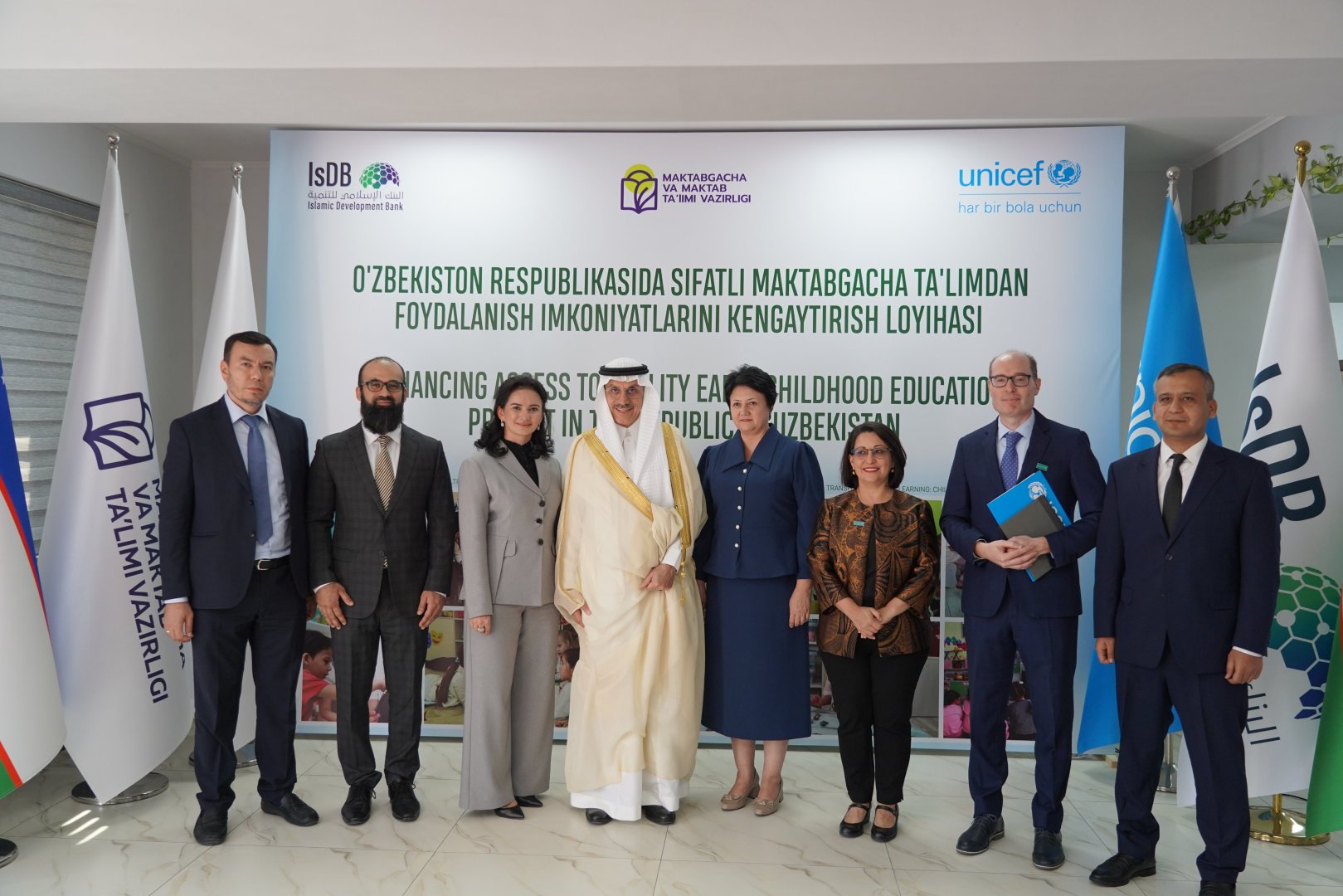TASHKENT, Uzbekistan, September 20. Uzbekistan and the Islamic Development Bank are teaming up to roll out major education reforms backed by a hefty investment, Trend reports.
Meanwhile, strategic cooperation between the Islamic Development Bank (IDB), the Government of Uzbekistan, and the United Nations Children's Fund (UNICEF) has led to transformative reforms worth millions of dollars aimed at modernizing Uzbekistan's education system.
At the forefront of this partnership is the Enhancing Access to Quality Early Childhood Education Project, implemented jointly with the Ministry of Preschool and School Education (MoPSE). With $2.3 million in funding, the initiative is establishing 11 regional training centers, launching Uzbekistan’s first AI-powered multimedia studio in Tashkent, and developing new teacher training programs at both pre-service and in-service levels.
Beyond early childhood education, the trilateral partnership is advancing the SmartED Project, Uzbekistan’s largest education investment to date, totaling $220 million. Within this framework, MoPSE and UNICEF have signed agreements worth $19.2 million to pilot inclusive education models, modernize the national curriculum and assessment systems, and strengthen quality assurance mechanisms.
“The Islamic Development Bank’s investment in Uzbekistan’s education sector is both timely and strategic,” said Regina Castillo, UNICEF Representative to Uzbekistan. “Early childhood education yields immense returns, and curriculum reforms are fundamental to creating a resilient and relevant educational system.”
These reforms come at a crucial time, as countries worldwide confront a global learning crisis. Research shows that children with access to high-quality early education are more likely to excel academically, achieve higher incomes, and contribute positively to society. Yet early childhood educators often remain undertrained, highlighting the urgent need for sustained investment in teacher development.
For IsDB, these initiatives align with its Member Country Partnership Strategy (2022–2026), which prioritizes human capital development as the foundation for sustainable and resilient growth.
The joint project portfolio between Uzbekistan and the IsDB has now surpassed $5 billion, encompassing key sectors such as transport, infrastructure, housing, energy, healthcare, and education, with more than 40 percent of investments directed to the private sector.







